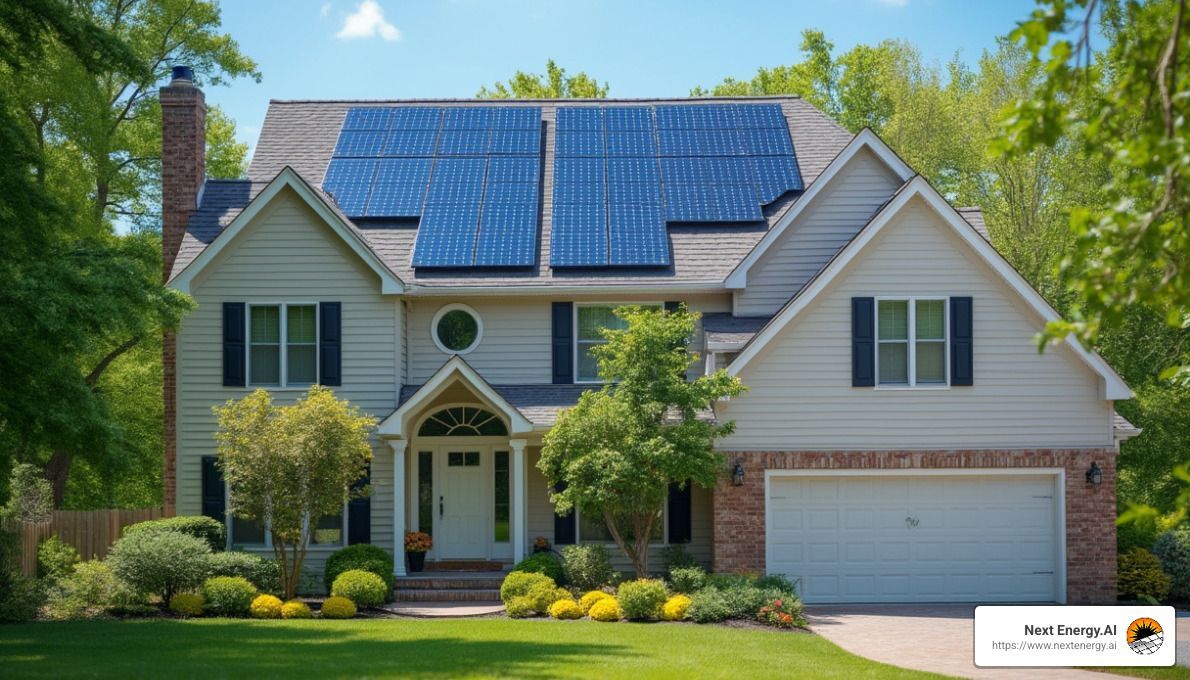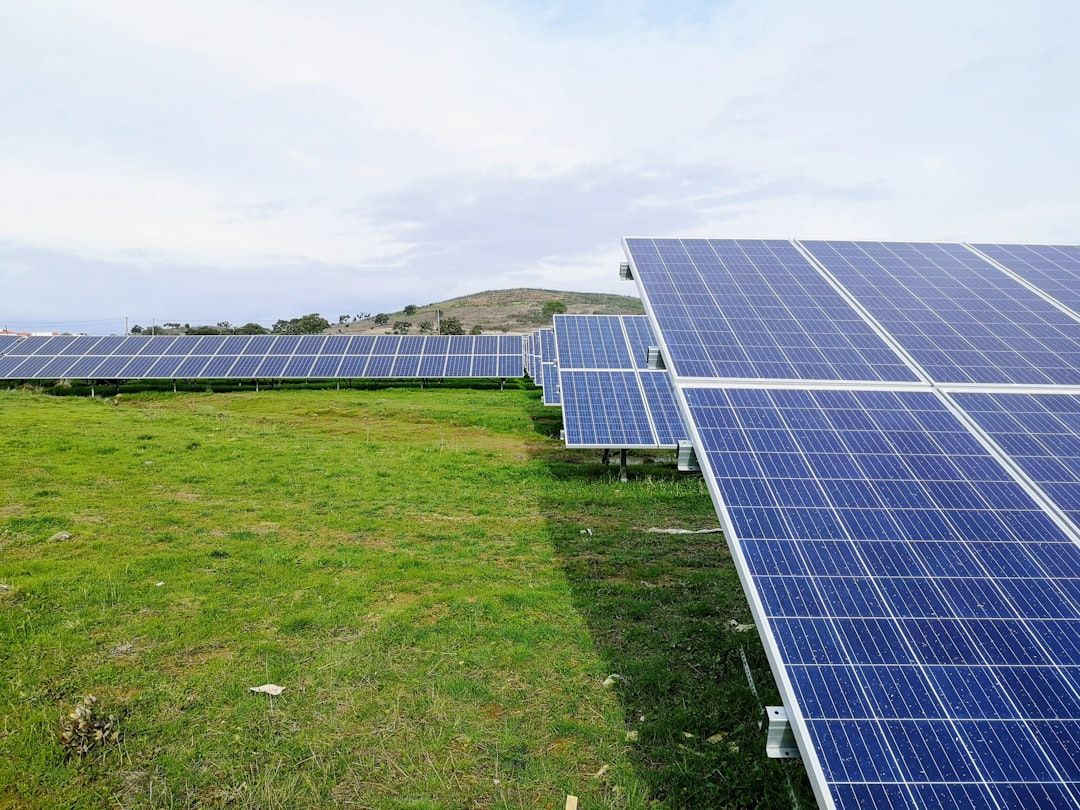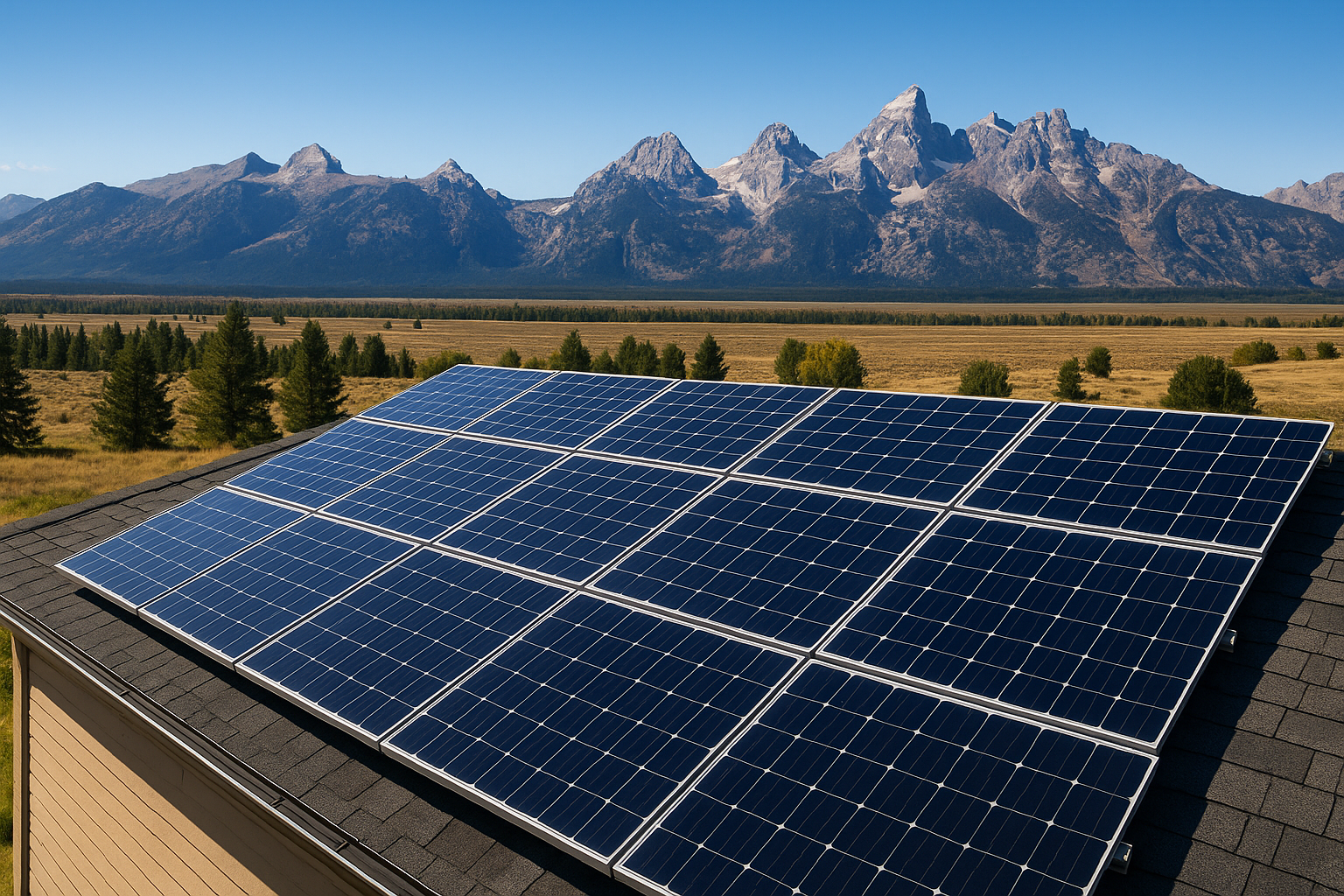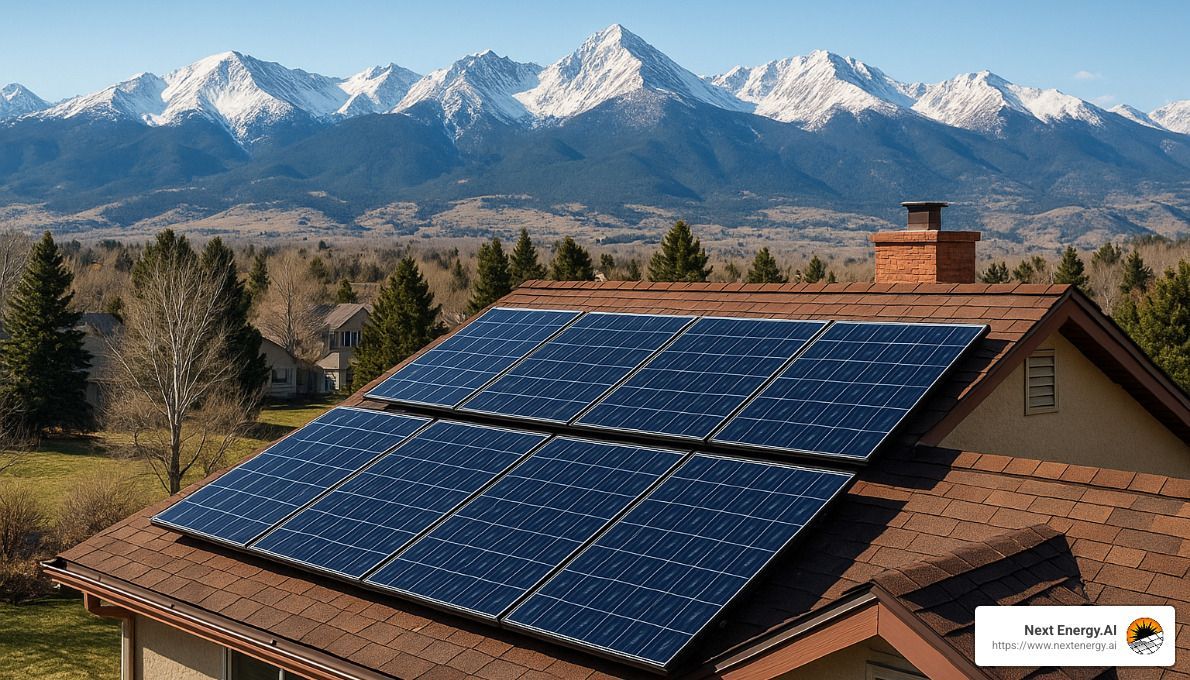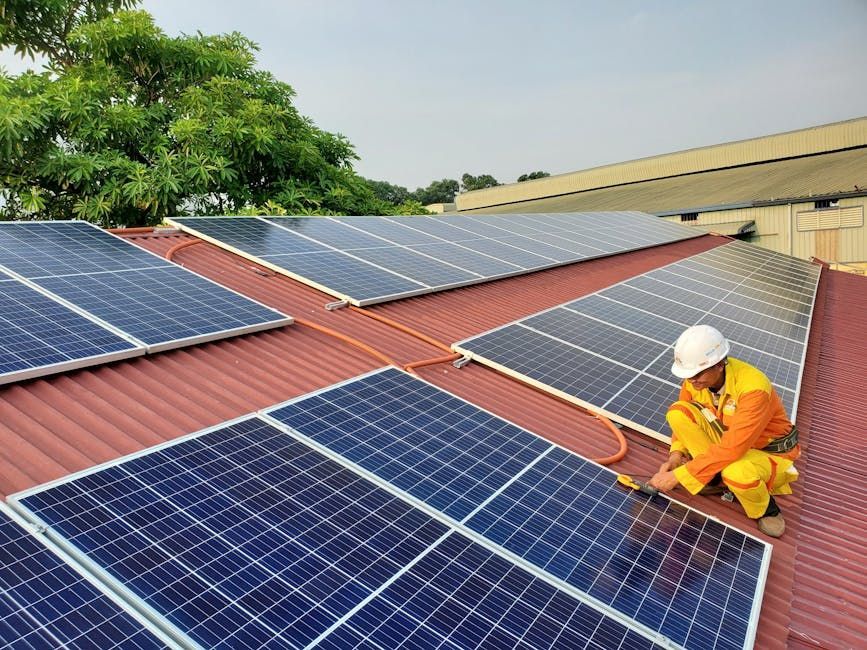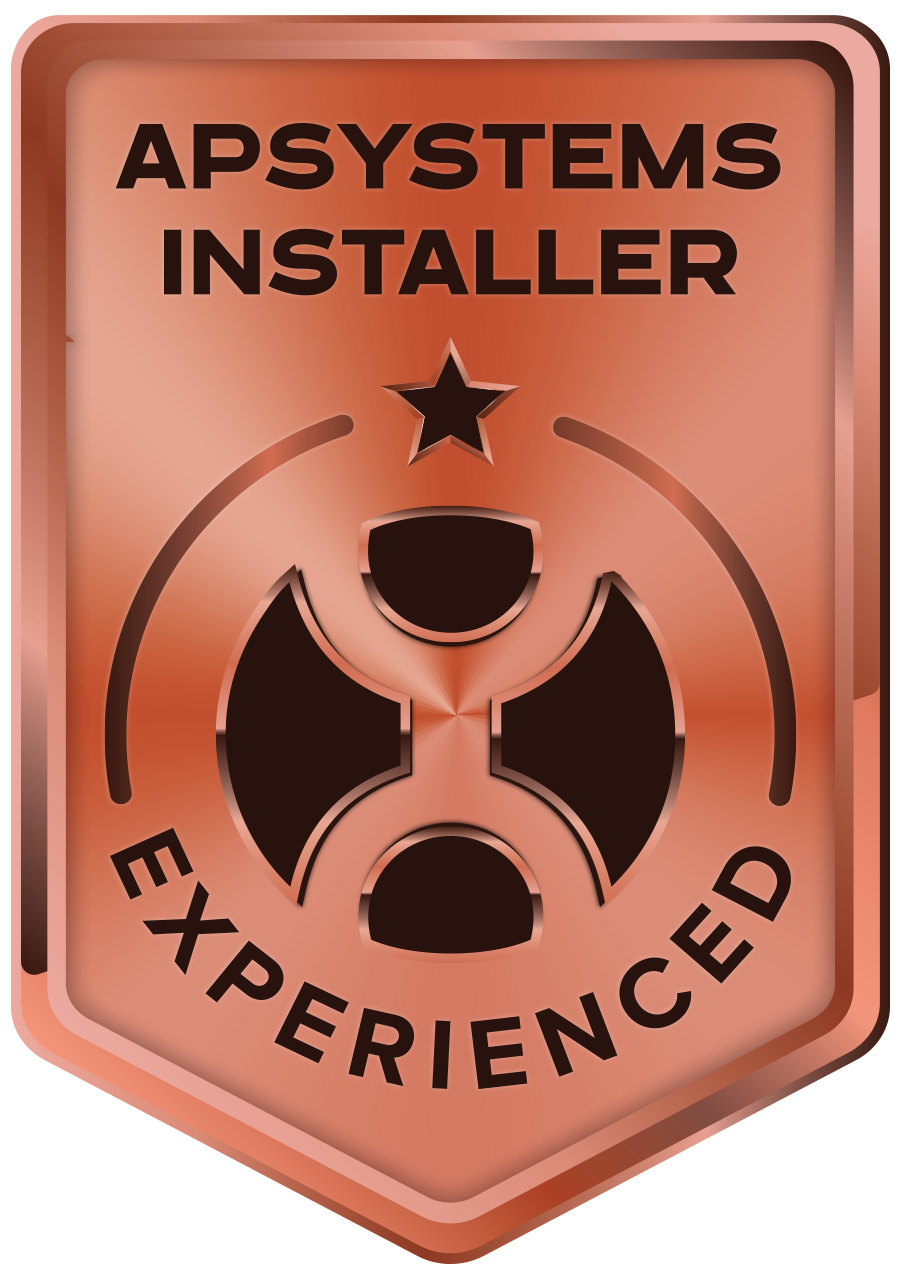Wired for Efficiency: Your Guide to Home Electricity Management
Home electricity management systems are changing the way we live today. These systems allow homeowners to monitor, control, and optimize their energy usage smartly and efficiently. Why is this important?
- Save money on energy bills by tracking and adjusting usage.
- Reduce your carbon footprint by using energy more wisely.
- Enjoy automatic control of devices, adapting to your lifestyle.
Imagine if your home could manage its energy consumption for you, much like a personal energy consultant. That's the power of a home electricity management system. With these systems, not only can your home monitor various appliances and devices, but they can also suggest—and even automatically implement—ways to save energy. This seamless integration of smart technology provides both convenience and significant environmental benefits.
As Spencer Gordon, CEO of Next Energy.AI, my journey in this field began with a commitment to renewable energy. With experience spanning photovoltaics and energy management, I'm here to help you harness the power of a home electricity management system for a sustainable future.
Understanding Home Electricity Management Systems
Home Electricity Management Systems (HEMS) are changing the game for homeowners. They offer a way to track, control, and optimize energy use, making your home smarter and more efficient.
Why use HEMS?
- Energy Savings: Imagine cutting down on your energy bills simply by having better control over your consumption. HEMS allows you to see how much energy each device uses and make informed decisions to reduce waste.
- Smart Devices Integration: HEMS connects with smart devices throughout your home. This means your lights, thermostat, and even appliances like your fridge can be managed from one central system. You can turn off lights remotely or adjust your heating schedule based on weather forecasts.
- Environmental Impact: By optimizing energy use, you reduce your carbon footprint. HEMS helps you use energy when it's cheapest and cleanest, often suggesting times to run energy-intensive appliances during off-peak hours.
How does it work?
Picture this: You leave your home for the day, and your HEMS takes over. It turns off unnecessary devices, adjusts the thermostat to save energy, and even charges your electric vehicle when electricity rates are low.
Real-life Example: Consider a family using HEMS to monitor their energy use. They noticed their washing machine used a lot of energy during peak hours. By adjusting their laundry schedule, they saved 10% on their monthly energy bill. This is just one way HEMS can make a difference in everyday life.
The Bottom Line: HEMS are not just about saving money. They offer peace of mind, knowing you're contributing to a cleaner environment while making your home more efficient. It's like having a personal energy assistant, always looking out for your best interests.
In the next section, we'll dive into the components that make up a home electricity management system and how they work together to power your home efficiently.
Components of a Home Electricity Management System
A home electricity management system (HEMS) is like the conductor of an orchestra, coordinating various components to create harmony in your home's energy usage. Let's explore these key components:
Photovoltaic (PV) Systems
Photovoltaic systems, commonly known as solar panels, are often the first step toward a self-sufficient energy home. They capture sunlight and convert it into electricity, reducing reliance on the grid. Most PV systems come with an inverter to convert the solar power into usable energy for your household devices.
Battery Storage
Think of a battery as your home's energy savings account. It stores surplus solar energy generated during the day, allowing you to use it when the sun isn't shining. This not only maximizes your solar investment but also provides a backup during power outages.
Heat Pumps
A heat pump is an efficient heating and cooling device that extracts heat from the air, ground, or water. It's powered by electricity and can be integrated with your PV system. This makes it a popular choice for homeowners looking to reduce their carbon footprint while maintaining comfort.
Electric Vehicles (EVs)
Electric vehicles are more than just a mode of transportation. With a smart EV charger, you can coordinate charging times with your HEMS to take advantage of low electricity rates or high solar generation. Some systems even allow for vehicle-to-home (V2H) energy transfer, providing additional energy storage.
Smart Meters
Smart meters are the eyes and ears of your HEMS. They provide real-time data on energy consumption, helping you make informed decisions. With this data, you can pinpoint energy hogs and adjust usage patterns, potentially lowering your energy bills.
White Goods
White goods, like washing machines and refrigerators, can be integrated into your HEMS. By scheduling their operation during off-peak hours or when solar generation is high, you can optimize their energy consumption. This intelligent control reduces costs and ensures efficient energy use.
These components work together to create a seamless and efficient energy ecosystem in your home. By leveraging each element, a HEMS not only reduces energy costs but also contributes to a more sustainable and environmentally friendly lifestyle.
In the next section, we will explore the numerous benefits of implementing a home electricity management system and how it can transform your energy experience.
Benefits of Implementing a Home Electricity Management System
Implementing a home electricity management system (HEMS) can significantly transform your energy experience. Let's explore the key benefits:
Cost Savings
One of the most appealing benefits of a HEMS is the potential for cost savings. By using smart devices and coordinating energy usage, you can reduce your electricity bills. According to some energy monitor companies, homeowners could save about 9% on their annual electricity bills. By scheduling energy usage during off-peak hours or when your photovoltaic (PV) system is generating power, you can avoid higher rates and maximize your savings.
Emissions Reduction
Homes account for a substantial portion of carbon emissions. By integrating renewable energy sources like solar panels and using efficient devices, a HEMS helps reduce your home's carbon footprint. This transition not only benefits your wallet but also contributes to a healthier planet. As Schneider Electric notes, homes are a significant source of emissions, so improving energy efficiency is crucial in the fight against climate change.
Renewable Energy Utilization
A HEMS makes it easier to integrate and manage renewable energy sources. With solar panels and battery storage, you can harness the power of the sun and reduce reliance on fossil fuels. The system optimizes the use of renewable energy, ensuring that clean energy is prioritized over grid electricity whenever possible. This not only supports sustainability but also improves energy independence.
Self-Sufficiency
Achieving energy self-sufficiency is a significant advantage of a HEMS. By generating and storing your own energy, you become less dependent on the grid. In times of power outages or peak demand, your home can continue to operate smoothly. For instance, using an electric vehicle as a backup power source during outages is a practical example of how a HEMS can improve self-sufficiency.
These benefits make a compelling case for adopting a HEMS, offering not just economic advantages but also contributing to a more sustainable lifestyle. In the next section, we'll guide you through choosing the right home electricity management system to suit your needs.
How to Choose the Right Home Electricity Management System
Choosing the right home electricity management system (HEMS) can feel overwhelming, but breaking it down into key components can make it simpler. Here's what to consider:
Compatibility
First, ensure that the HEMS is compatible with your existing devices and infrastructure. Whether you have solar panels, a battery storage system, or an electric vehicle, the system should integrate seamlessly. This compatibility ensures that you can maximize the benefits without needing extensive upgrades.
Tip: Check if the HEMS supports your current and future devices, like smart appliances or an EV charger.
Internet Connection
A reliable internet connection is crucial for most HEMS. This connection allows for real-time monitoring and control of your energy usage. It also enables software updates and remote access via mobile apps.
Remember: A stable internet connection ensures that you can receive notifications and make adjustments to your energy use from anywhere.
Local Gateway
A local gateway acts as the communication hub for your HEMS. It connects your smart devices, solar panels, and other components to the internet. This gateway ensures that all parts of your system can communicate effectively.
Note: Look for a system with a robust local gateway to ensure seamless operation and integration of all components.
Software Applications
The software that comes with your HEMS is vital. It should be user-friendly and provide valuable insights into your energy consumption. Look for features like real-time monitoring, energy-saving tips, and alerts for unusual activity.
Pro Tip: Choose a system with a mobile app that allows you to control and monitor your energy use on the go. This feature is particularly useful for busy homeowners.
By considering these factors—compatibility, internet connection, local gateway, and software applications—you can select a HEMS that fits your needs and helps you manage your energy efficiently. In the next section, we'll answer some frequently asked questions about home electricity management systems.
Frequently Asked Questions about Home Electricity Management Systems
How can I monitor my whole house electricity?
Monitoring your entire home's electricity use is easier than ever with modern power monitors. These devices provide a detailed overview of your energy consumption, helping you identify areas where you can save.
By connecting to your electrical panel, a power monitor can track the energy usage of each circuit. Some advanced models even recognize individual appliances, offering insights into which devices consume the most power. This data can guide you to unplug "phantom loads"—devices that use energy even when turned off.
Tip: Using a power monitor can help lower your energy bills by highlighting inefficient energy use.
What is a home energy management system?
A home energy management system (HEMS) is like the brain of your home's electricity setup. It doesn't just keep track of energy use; it optimizes it.
HEMS integrate various components like solar panels, batteries, and electric vehicles (EVs) to ensure efficient energy use. They manage load changes by shifting energy use to off-peak times, a process known as peak shaving. This can significantly reduce your energy costs by using stored energy or solar power when electricity rates are high.
HEMS can also automate energy savings by coordinating with smart appliances. For example, they might delay running your dishwasher until energy demand is lower, saving you money.
Are energy management systems worth it?
In short, yes! Energy management systems offer numerous benefits, especially if you have solar panels or an EV.
By optimizing when and how energy is used, HEMS can lead to substantial cost savings. They enable smarter use of your own generated power (PV generation) and can even store excess energy for later use. This self-sufficiency means less reliance on the grid, reducing your energy bills and carbon footprint.
For EV owners, HEMS manage charging efficiently, often during off-peak hours when electricity is cheaper. This not only saves money but also extends the life of your battery by avoiding unnecessary stress.
Investing in a HEMS can be a game-changer for your home, making it more efficient, sustainable, and cost-effective.
In the next section, we'll dig into the benefits of implementing a home electricity management system.
Conclusion
At Next Energy.AI, we're committed to leading the charge in revolutionizing home energy management with our AI-improved solar solutions. Our approach transforms solar panels into smart systems that not only generate clean energy but also optimize its usage throughout your home.
Why AI Matters
Integrating advanced AI technology into your home electricity management system is a game-changer. AI helps in real-time energy monitoring and decision-making, ensuring that every watt of energy is used efficiently. By predicting energy demand and adjusting consumption patterns, our systems maximize the use of renewable energy, reduce reliance on the grid, and cut down on energy costs.
Optimized Energy Usage
Our AI-improved solutions ensure that energy is used where and when it's needed most. This means your solar panels and batteries work harmoniously with other smart devices in your home. Whether it's managing the charging of your electric vehicle or coordinating with smart appliances, our system intelligently shifts energy loads to save you money and reduce emissions.
A Sustainable Future
By choosing Next Energy.AI, you're not just investing in a product; you're investing in a sustainable future. Our solutions empower you to take control of your energy usage, reduce your carbon footprint, and contribute to a cleaner planet.
Ready to take the next step in efficient energy management? Learn more about our services and how we can customize a solution for you.
Together, let's power your home with intelligence and sustainability.
